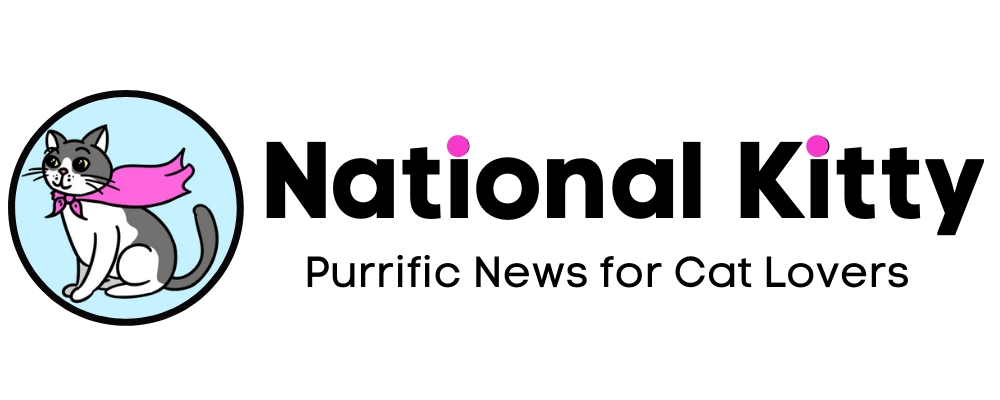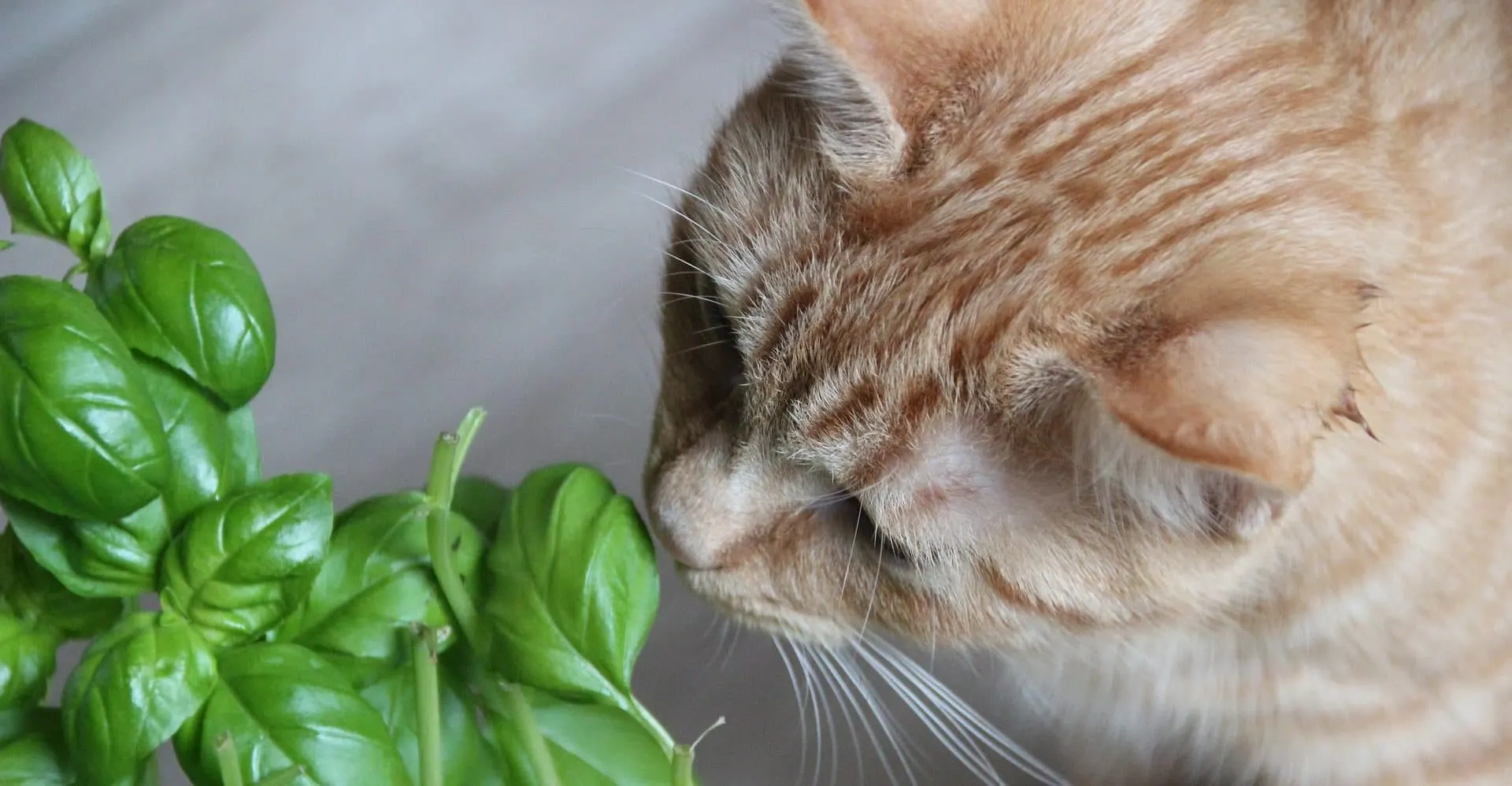Cats are curious by nature and love to chew on plants.
Though it’s normal for them to chew, it is important to make sure they aren’t chewing on a plant that is harmful or potentially even fatal to them.
Here are a list of common household plants that are toxic to kitties and some symptoms that are associated with poisoning.
Plants That Are Toxic To Cats
1. Lillies: All forms of lillies are toxic to cats! Though the specific poison has not been identified, even eating a single leaf or lick of pollen can be fatal.
Although they are beautiful flowers this is one plant that should be kept with extreme caution in a feline household.
2. Calcium oxalate containing plants which includes the following:
- spinach
- agaves
- tea leaves
- philodendron
- many others
Theses plants contain very small, sharp barbs on the leaves. When cats chew on them, it can cause irritation and swelling of the mouth and gums leading to drooling and even vomiting.
3. Sago Palm: This is a plant that is kept both indoors and outdoors, so it is important to check your yard as well. The entire plant is toxic, but the most harmful part of the plant is the seed pod, or nut.
Sago palms in general should be avoided as household plants. Eating just a small amount can cause vomiting, diarrhea, seizures, and can even lead to liver failure.
4. Daffodils: This one can be especially challenging for an outdoor cat owner in spring months. Eating any part of the plant can lead to vomiting, diarrhea, abnormalities in heart beat, convulsions, and change in blood pressure.
5. Tulips: They typically are not fatal to cats when ingested, but even a single bite of the bulb, in particular, can lead to irritation of the mouth and gums and upset stomach. It is best to avoid them altogether.
6. Dracaena: There are over 40 species in this family of plants in the dracaena family. A cat that eats a plant in this family may experience drooling or vomiting, but symptoms typically last 12-24 hours and resolve on their own.
However, it is still very important to monitor your cat closely and contact your veterinarian if your cat eats part of a plant in this family
7. Seasonal plants: Veterinary expert, Dr. Volmer, explains that poinsettias, mistletoe, holly, shamrocks, and easter lillies can all pose a risk to cats. It is best to keep these out of your home or even buy fake versions if possible.
8. Soil: Another thing to keep in mind is that while it is not necessarily toxic, often times potting soil used for indoor plants can contain parasite eggs which your cat may come in contact with.
This is something that can easily be prevented by giving your cat a monthly heartworm, flea, and dewormer medication and by getting yearly fecal checks by your veterinarian.
If you suspect your cat may have intestinal parasites call your veterinarian and collect a fresh stool sample (less than 12 hours old) for examination.
Symptoms to Watch For
Some plants affect specific organs such as the kidneys, liver, heart, GI tract, or airways so symptoms relating to these organs should be monitored. These symptoms may include:
- Difficulty breathing
- Excessive drinking and urination
- Abnormal heartbeat (fast, slow, or abnormal rhythm)
- Yellow colored whites of eyes or skin
- Vomiting
- Diarrhea
- Drooling or pawing/scratching at mouth
Any behavior that is not normal for your cat should be monitored and reported to your veterinarian; especially if it is suspected he/she has eaten a plant that may be toxic to him/her.
What To Do If Your Cat Eats A Poisonous Plant
Call your veterinarian if:
- If you see your cat eating a plant and are unsure if it is toxic.
- You suspect your cat has eaten a plant that may be toxic.
While you are waiting to meet or speak with your veterinarian, you can take the following measures:
1. Remove any plant matter from your cat’s skin and coat.
2. If your cat has any remaining residue on their skin and coat you may bathe them in warm water and gentle dish soap to remove it.
3. Identifying the plant is very important in treating your cat properly. Take a clipping of the plant with any present leaves, stems, seeds, or flowers to your veterinarian so they will be able to better identify it.
- If you are unsure of which plant it may have been and your cat vomits any plant matter that was ingested, take a sample of the vomit to bring to your veterinarian.
- It is also helpful to bring a list of the plants in your home so that you and your veterinarian can better determine which plant was ingested.
4. Call the Pet Poison Hotline at 1-855-213-6680.
5. Do NOT induce vomiting without consulting the Pet Poison Hotline or your veterinarian.
Safer Alternatives
It may seem like there are so many dangerous plants that it isn’t even worth keeping them in your home, but that isn’t the case at all! There are many plants that are safe for cats that they will love, and you will too.
- Burros’ Tail Succulents
- Peperomia
- Lipstick Plants
- Phalaenopsis Orchids
- Bromeliads
- Cat Nip & Cat Grass
It should be noted that cats should still never be allowed to ingest household plants. It can still cause an upset tummy or even obstructions in the GI tract for particularly sensitive kitties – even if the plants are not poisonous.
Exercise Caution
This is not a complete list of common plants that are harmful to cats. Experts in veterinary toxicology are still researching plants that are toxic to cats.
Exercise caution before purchasing new plants and research the plant you want to bring into your home or plant in your garden.
Here is a more comprehensive list of plants that are known to be toxic to cats.

SUMMARY: Plants That Are Toxic To Cats
- All Lillies
- Sago Palm
- Daffodils
- Tulips
- Dracaena
- Poinsettias
- Mistletoes
- Shamrocks
- Spinach
- Agave
- Tea Leaves
- Philodendron
- All Calcium Oxalate Containing Plants




Sabrina kegley
Friday 26th of March 2021
Did you know that marijuana if your cat eats the leaves it will kill your cat.
Krys-Tyna Collins
Sunday 3rd of March 2024
@Sabrina kegley, I’d like some info on that. I have seen cats eat pot leaves. Since kittens, we have taught our cats their outdoor boundaries, only pet food, no tables or counters & no plants. Luckily I’ve not had any problems.
Theresa Garcia
Sunday 14th of March 2021
Oleander is also toxic to both cats and humans
Roisin Halfar
Thursday 1st of August 2019
The ASPCA has a phone app with a listing and symptoms, severity, expected responses from your pet, and photos of animal toxic plants, foods, chemical auto and household cleaning products - just download and select your animal and category of concern from the menu! It covers cats, dogs, birds and horses.
Jean
Tuesday 22nd of January 2019
Spider plants are also toxic for cats
laurie minute
Monday 5th of April 2021
my cat tiger eats the leaves and has never been sick.